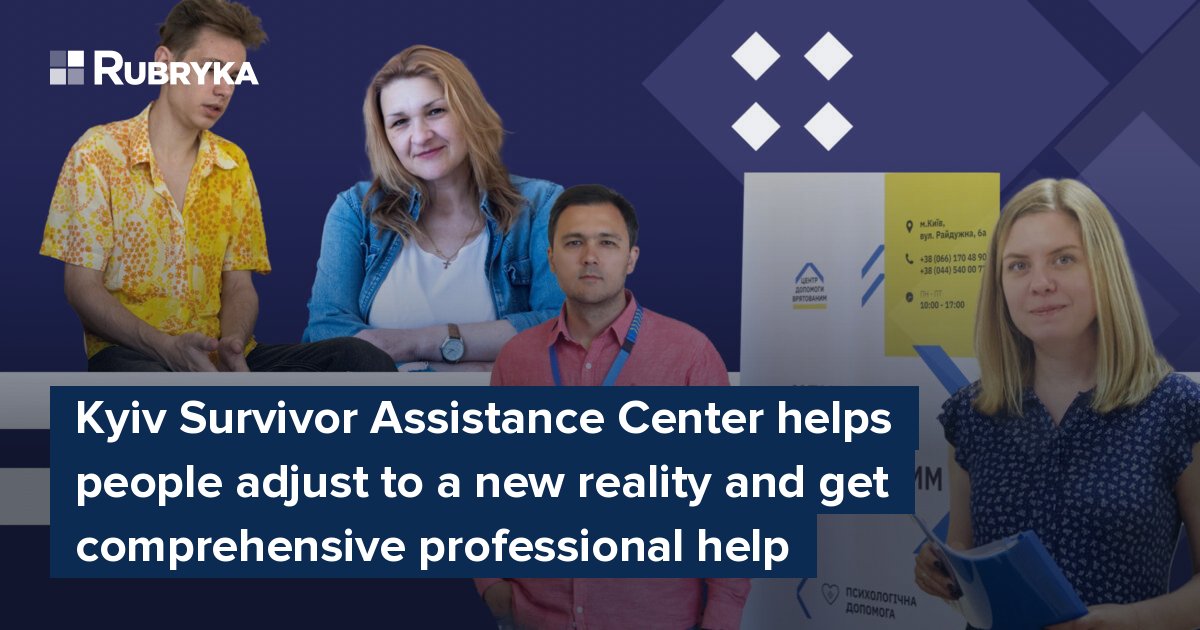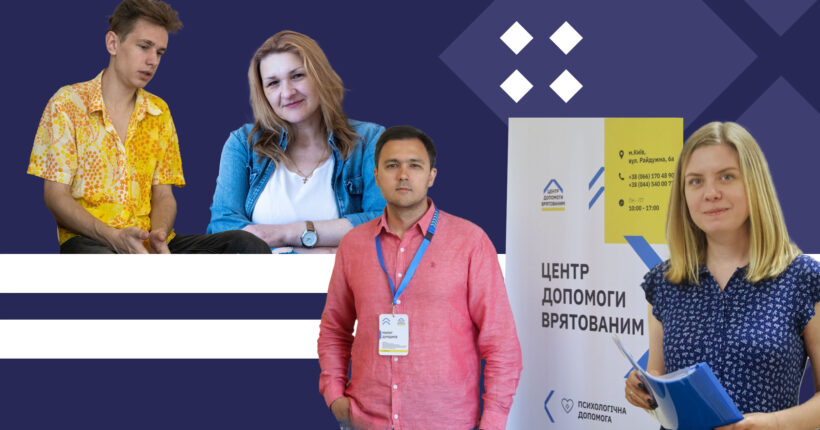
What is the problem?
Due to Russia's full-scale aggression against Ukraine, Kyiv has seen almost a quarter of a million people displaced to the capital city. Since 2014, there have been more than 384,000 displaced, of which about 66,000 are children. The real number is even higher, and people were often left with practically nothing or received psychological injuries or were subjected to violence and needed professional support.
What is the solution?
Eleven centers for helping survivors across Ukraine
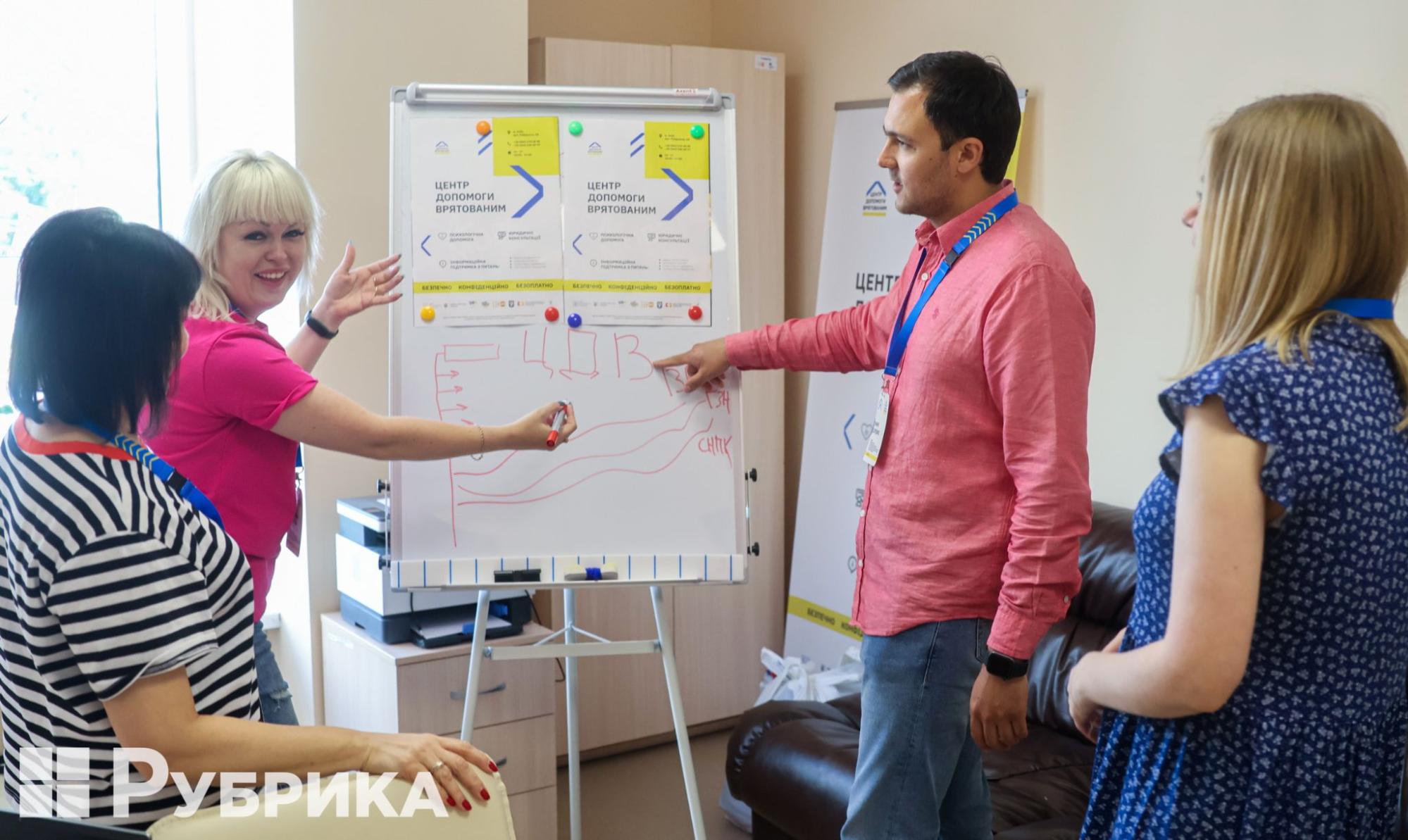
The uniqueness of the Kyiv Survivor Assistance Center is in the neighborhood of several initiatives designed to help people.
Since the autumn of 2022, a network of assistance centers has grown in Ukraine with the help of the Office of the Deputy Prime Minister for European and Euro-Atlantic Integration, the Government Commissioner for Gender Policy, the UN Population Fund, UNFPA, and local authorities in Ukraine.
The Assistance Centers network was developed with the support of UNFPA, the United Nations Population Fund
Rubryka has reported that comprehensive professional assistance is provided to survivors in all assistance centers, including:
- psychological,
- legal,
- informational (where and what kind of humanitarian assistance can be obtained, how to join the labor exchange, how to place a child in an educational institution, how and where to use state services, etc.).
Safe, confidential, free of charge, and unconditional care are the principles of providing assistance. As of the end of May 2023, 11 such centers are already operating in Ukraine.
The Survivor Assistance Center in Kyiv has been operating since the fall of 2022. Over 1,200 people have turned to it during this time.
How does it work?
A "glove" of initiatives
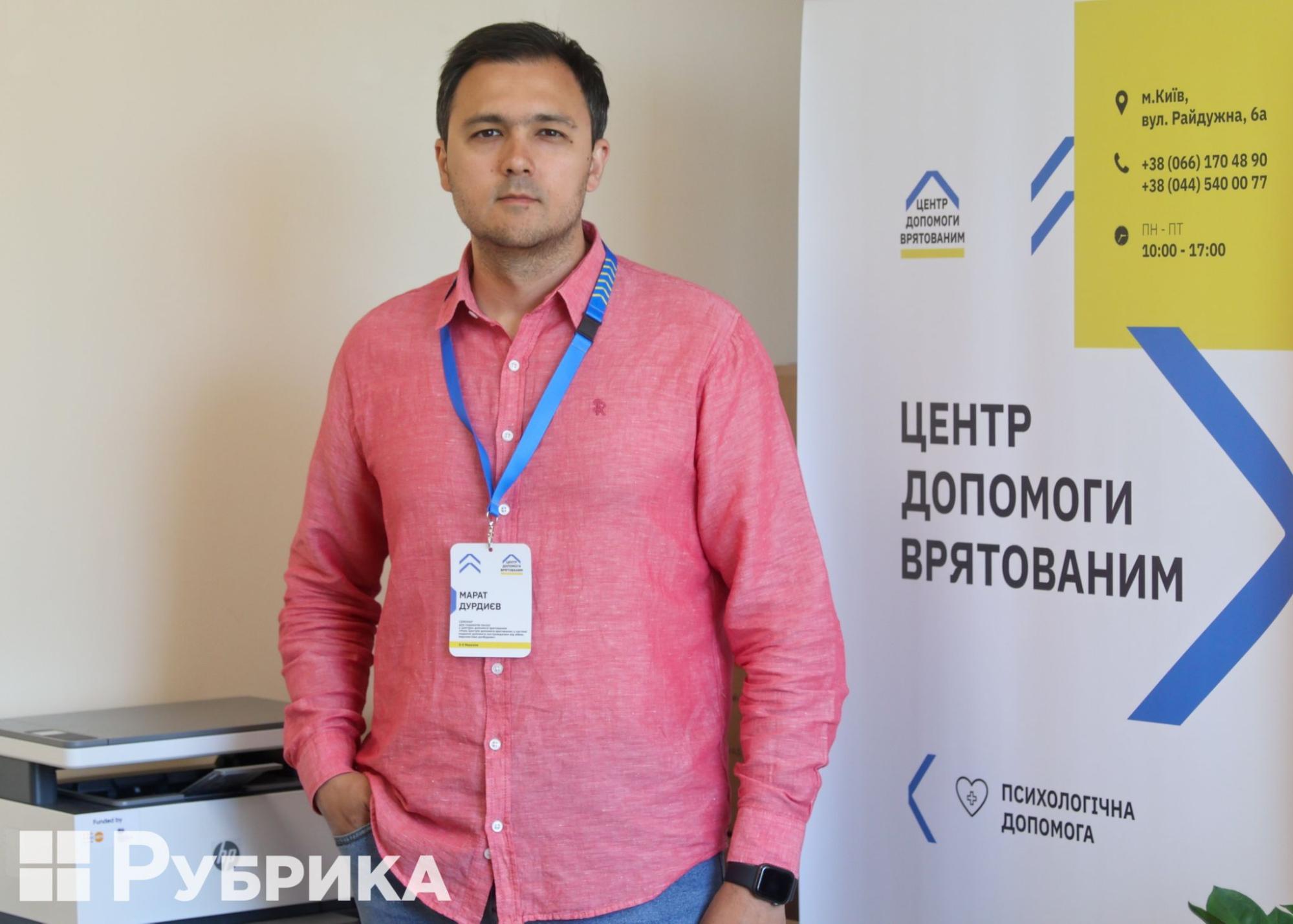
Marat Durdyev, the coordinator of the Survivor Assistance Center in Kyiv, considers the fact that most of its employees have a degree in Psychology to be a great advantage of the institution
Marat Durdyev, the coordinator of the Survivor Assistance Center in Kyiv, says: "The uniqueness of this center is in our big friendly glove."
The Assistance Center is also home to a day center for socio-psychological assistance to people who have suffered from violence;
- the Vilna Space, an all-Ukrainian network of hubs supporting women.
"Everyone has their own task, but we are close and constantly make use of this community. Why not – if our calling is to help people?" explains the coordinator of the center. The team exchanges experience and services, trying to satisfy all the requests they can, except for direct medical ones.
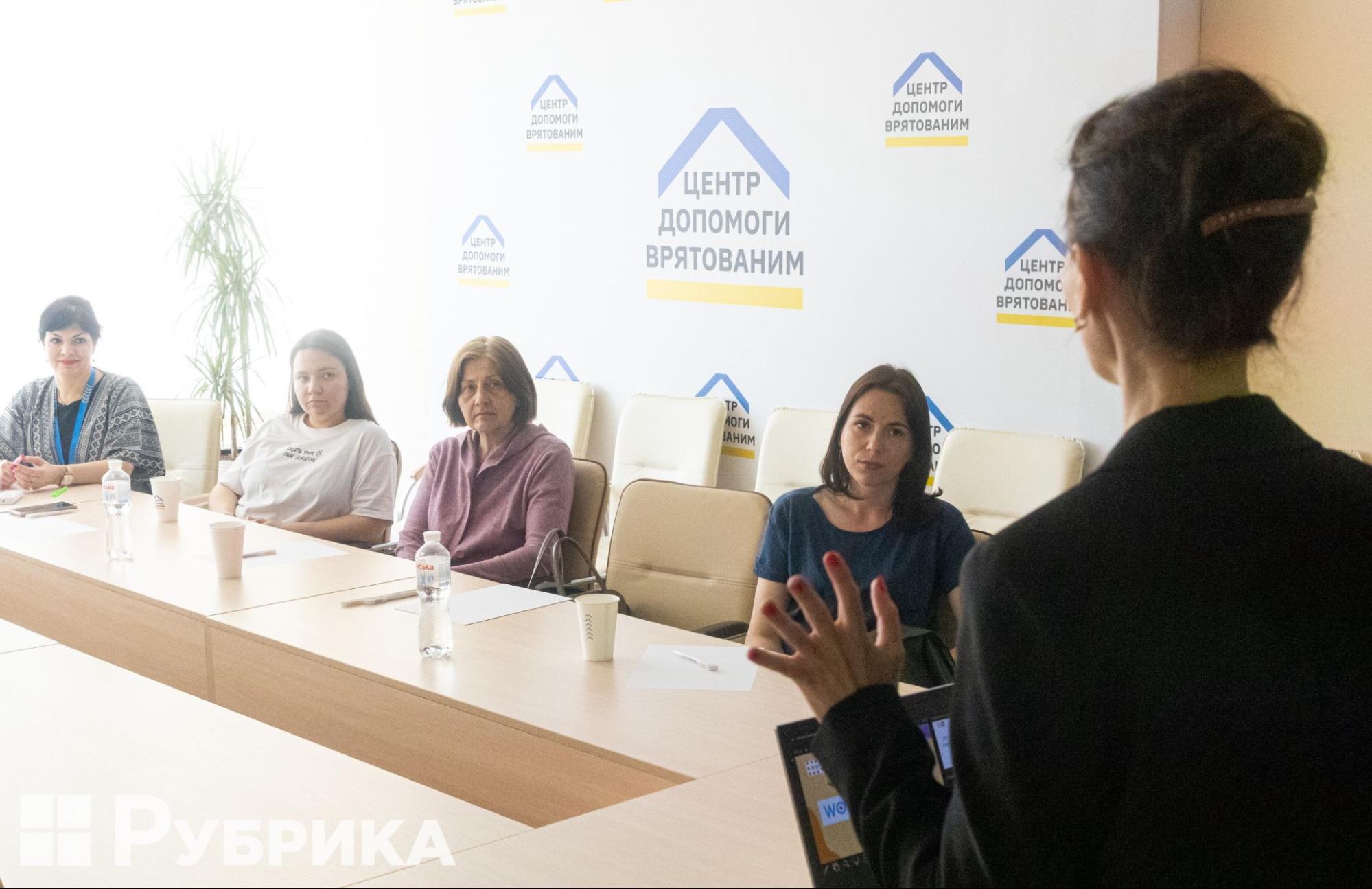
The premises of the center are a base for several organizations, and joint events are also held here
Durdyev adds that the center does not work as a humanitarian aid headquarters, but still provides it upon request, albeit in small amounts.
"Today, almost no institutions in Kyiv provide humanitarian aid – it all went to Dnipro and Zaporizhzhia, as the demand there is bigger. Therefore, with the support of the UN Population Fund, we offer this service that our clients need," says Durdyev.
Who can apply to the center?
- internally displaced persons;
- people affected by sexual violence;
- people affected by gender-based violence, domestic violence;
- people who got into difficult life circumstances.
Families of military personnel can also contact the Survivor Assistance Center, where they will receive psychological assistance.
Selected personnel and unusual positions
Social worker Olena Lavrova is the first person to meet the center's visitors. After she gets to know them, she tells them about the specialists at the center, and what they can do to help. If it is a one-time consultation, she passes it on to a lawyer, for example, if their services are needed. If a person has no resources, lost documents, needs to find a job, send their children to kindergarten or school, or needs medical care – they may go to the center's case manager.
"Almost all employees, regardless of position, have a degree in psychology. This is important because people come to us in different psychological states, sometimes very unbalanced," says Durdyev – noting it as another of the institution's advantages.
How a case manager works
"Together with the client, we create a work plan and go toward the goal"
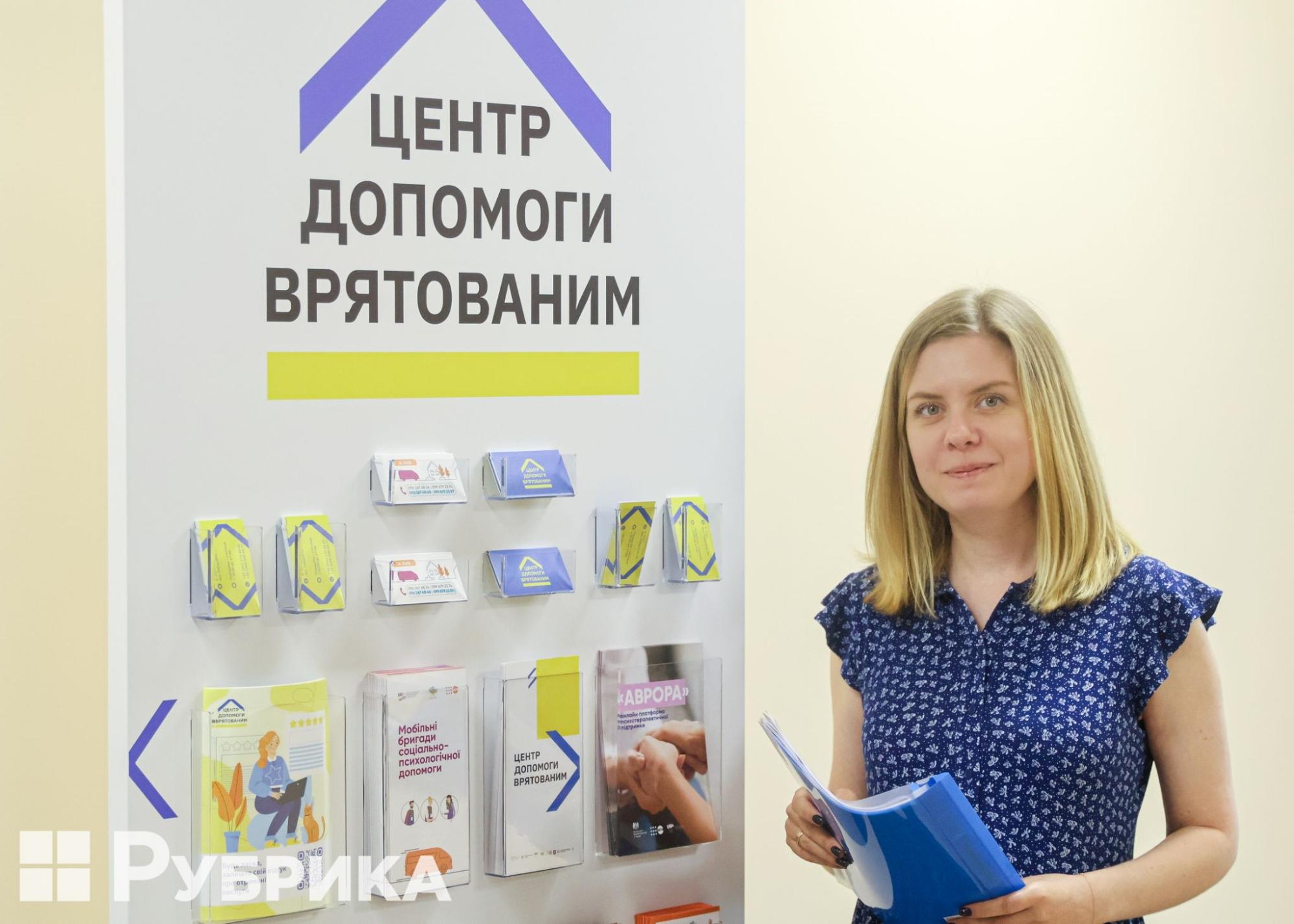
Case manager Yulita Kruhlyak talks about the kind of help you can get at the center
"We have two case managers and two psychologists who pair up and create a work plan with the client, develop a goal to which they will go, and provide assistance," explains case manager Yulita Kruhlyak.
A case manager is a new position for Ukraine, but has long been known abroad. This specialist handles a specific case and provides comprehensive professional assistance.

Although the center does not have the function of a humanitarian headquarters, humanitarian aid is provided here upon request
"The main idea of my position is to temporarily help and provide support until the person says: 'Thank you, I can take it from here'," says Kruhlyak.
She stayed with her children in Czechia from March to June of 2022, and there, having a degree in psychology and experience, she tried to help other refugees take care of themselves and their condition.
"We held light conversations on what is normal and what is not, how to take care of yourself and your children," Kruhlyak told Rubryka. "After this experience, I had the idea to look for my next job in the same field because I saw that it works."
It works like this: today, a person comes confused, without resources, and does not know where to go and what to do. And after two weeks, they have gained some new experience and can take care of themselves.
After returning home, Kruhlyak was selected for the case manager position and underwent additional training with psychologists and lawyers, since her social work involves understanding the legal context of cases.
Does it really work?
The case of Kyrylo Dobrotvorskyi: when the willingness to support is more important than material aid
The center's employees introduced us to a client — 20-year-old Kyrylo Dobrotvorskyi from Sievierodonetsk. They say his case is an excellent example of temporary – but effective – support.
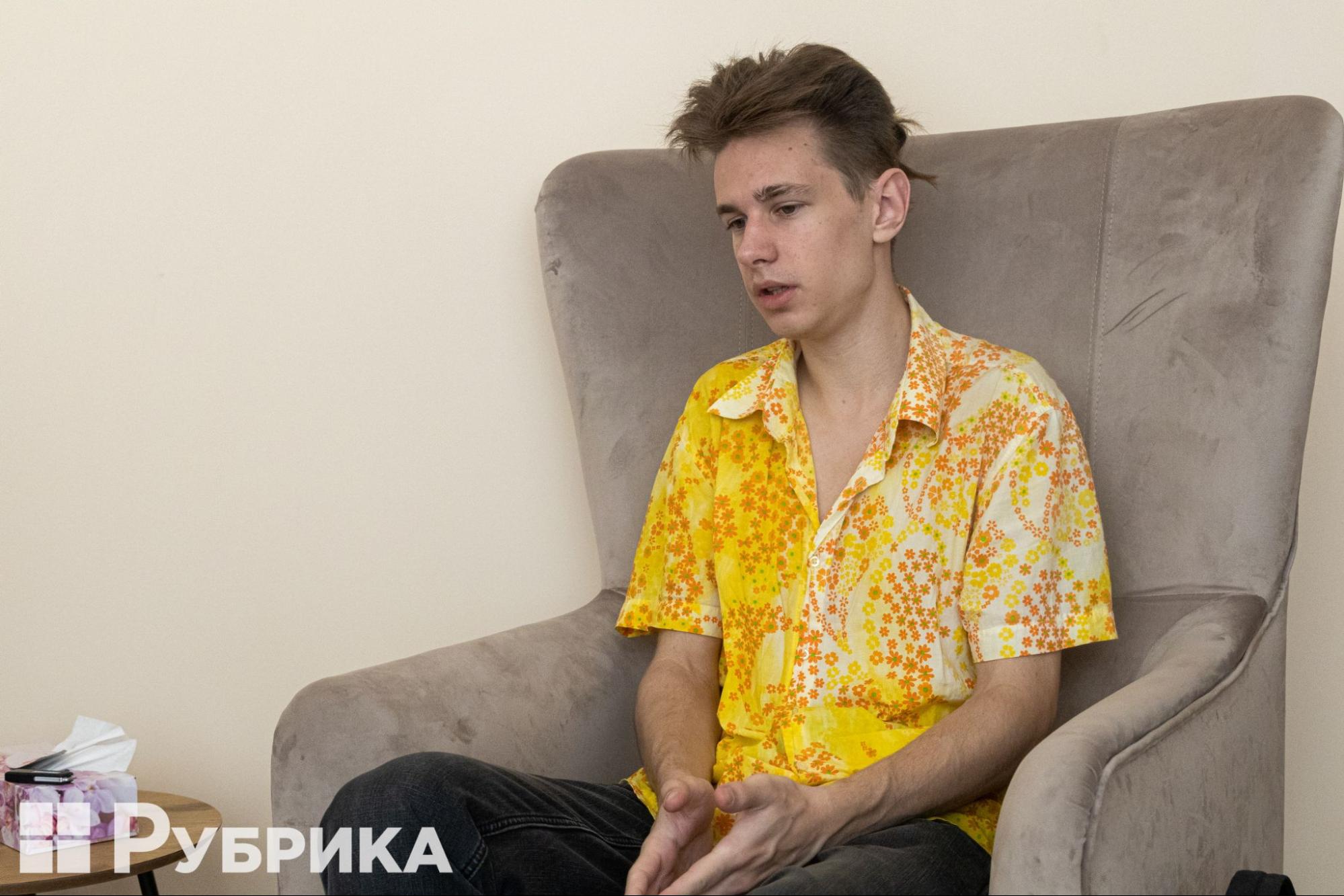
Kyrylo Dobrotvorskyi says that he felt empty after he moved to Kyiv
The smiling and talkative young man recalls how he and his mother, younger brother, and immobile grandfather lived in an apartment without heating and gas for two weeks from February to March 2022, and how, almost by chance, they managed to leave. With the help of their uncle, they moved through Lysychansk and Dnipro, before finding temporary shelter in Bila Tserkva, outside the capital, Kyiv. Kyrylo said it was impossible to find housing at the end of last summer, and his mother and brother decided to leave for Poland, so the boy was left alone. He decided to move to the capital, where he studied at the university. Kyrylo single-handedly found a place to live and moved, and how he felt empty and exhausted after the ordeal he'd been through.
"I remember it all calmly now, but in fact it was a very turbulent period, and if it weren't for the center, I don't know if everything would have happened," the 20-year-old shares.
He explains that he moved to Kyiv to take life into his own hands because he was essentially dependent on benefits and payments. On the one hand, he breathed a sigh of relief that things were going well. On the other hand, there was even greater internal tension because he understood no one would do everything for him, and certainly not forever. At the same time, Kyrylo began to have conflicts with his closest friend and only emotional anchor.
"You are essentially left alone with the world," Dobrotvorskyi continues. "When I came to the center, I thought that my request was for humanitarian aid, but it turned out that I also needed psychological support, which helped me a lot."
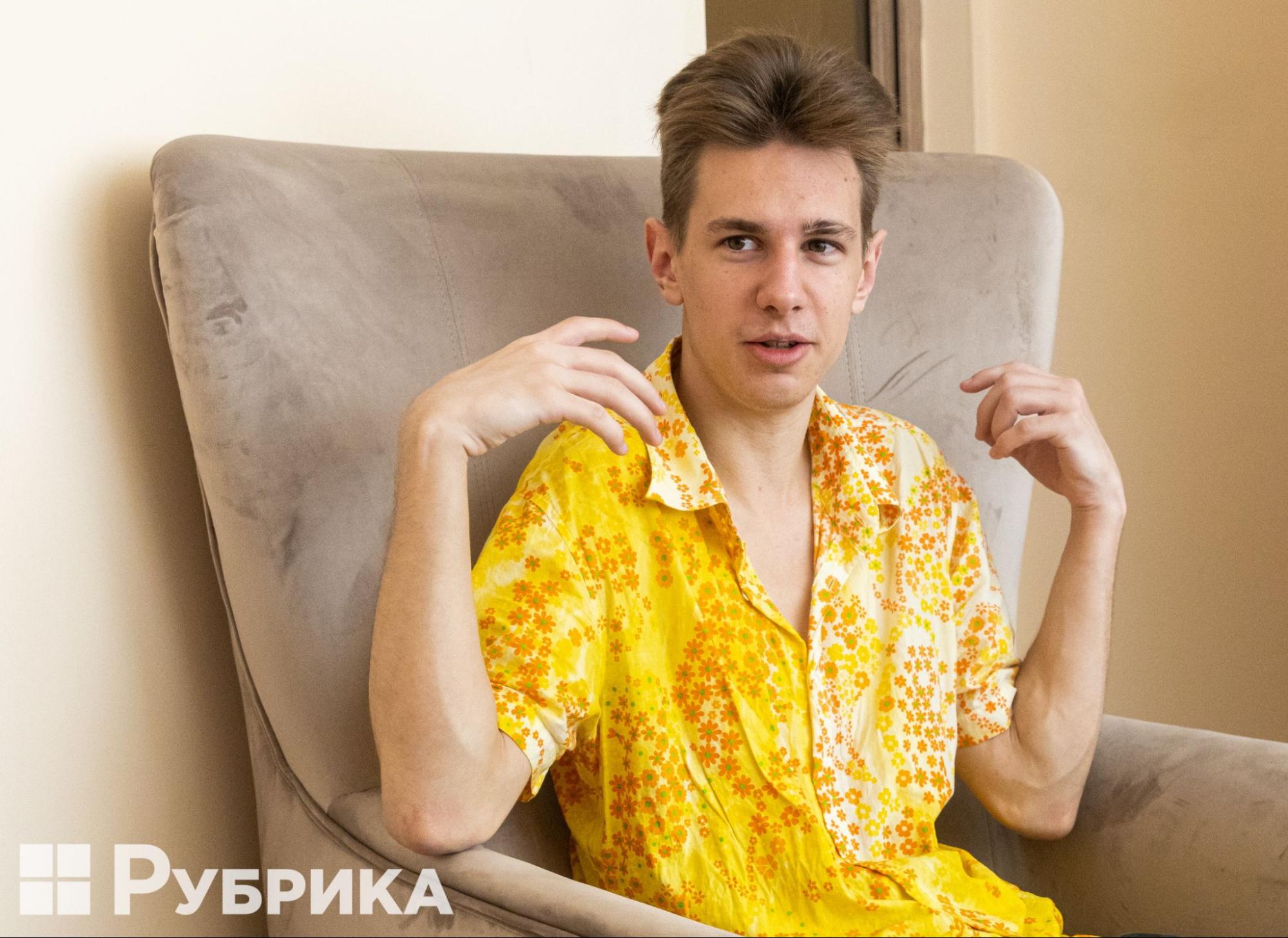
After talking with a psychologist, Dobrovorskyi concentrated on what he could do himself
Now Kyrylo has a job as a drumming teacher, which he enjoys. Although he studies social work, he considers music his vocation and manages to develop his skills in this area.
"Also, I was given a large array of information here — so much was shown and told. The center also provided material assistance, although this is not its task," Dobrovorskyi shares. "The willingness of people to help you is even more valuable than the fact of receiving financial aid. Attention is significant and something more than just coming and doing something for you."
Case manager Kruhlyak says: "Kyrylo got something from me, something from a psychologist. Now he is a completely independent adult responsible person who makes his own decisions and lives on."
How does a psychologist work?
"A person should be ready to work with a specialist, and the decision is always up to them"
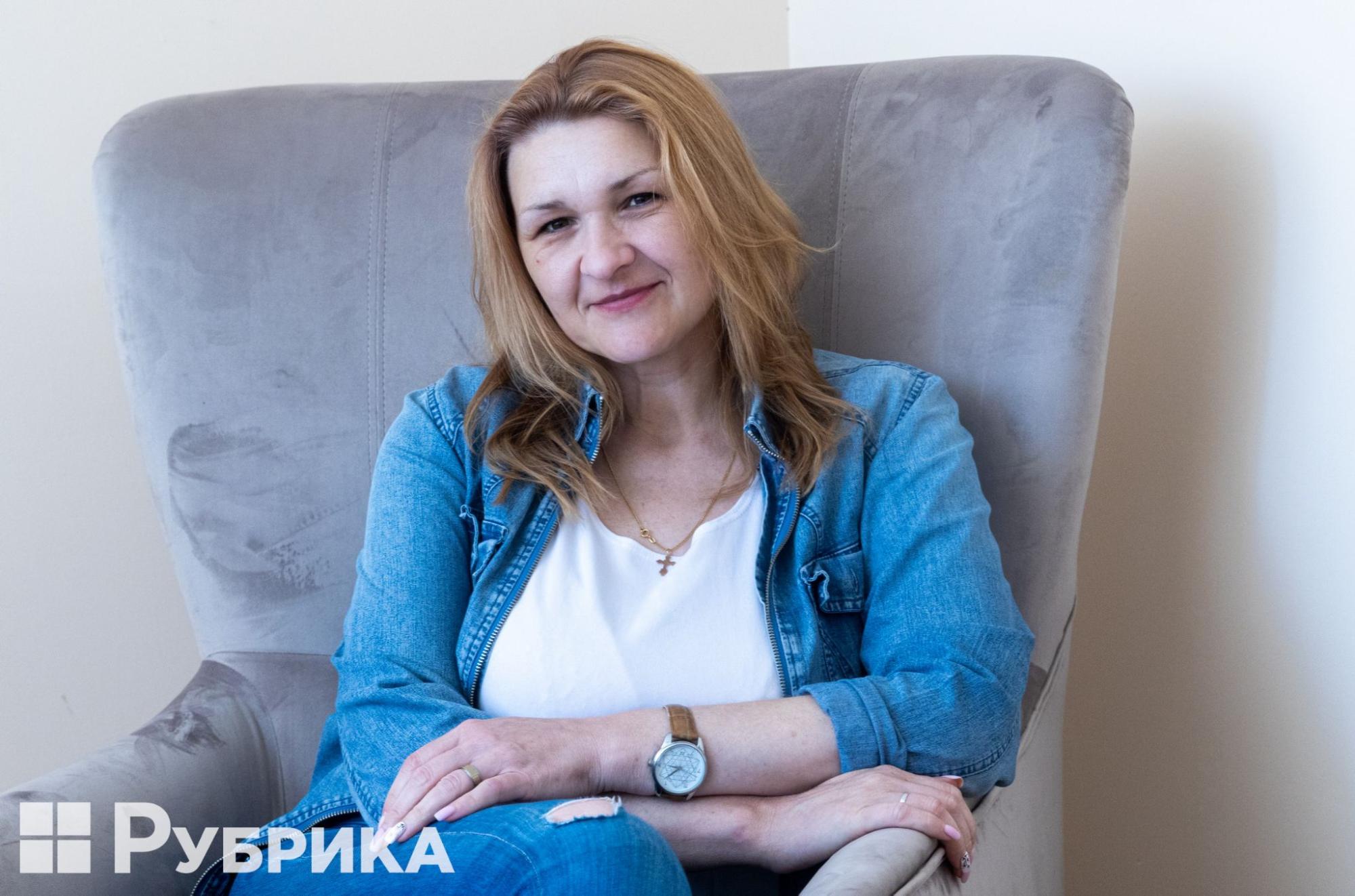
Kateryna Shatkovska develops a specific work plan with each client
Sessions with a psychologist took place once a week. This is structured work with a starting point and a particular goal. While working from a tentative emotional state, everything came to an understanding: yes, there are problems, and there will always be certain challenges in life, but you have to be able to deal with them.
Psychological assistance is mainly provided at the center at the client's request.
"Our policy is as follows: we provide full information about what we can help with, but the decision is always up to the person. We do not decide anything for our clients," says Shatkovska. "We can recommend working with a psychologist, but when a person does not feel right, we respect their decision. We are always in contact, and when they are ready, they can apply."

The psychologist of the center explains that she works with the client if they are ready for such work; it is always the decision of the person themselves
Shatkovska has eight years of experience in psychology. She says that after the start of full-scale war, her first reaction was to freeze, but the turning point came when she learned that in Irpin, the Russians shot a friend and her family from a tank. Then Kateryna took courses to improve her qualifications and then underwent competitive selection for this job.
"It was interesting to me from a professional point of view, and I had an inner desire to be where I can really bring benefit," Shatkovska shares.
Psychological assistance to military families
Not a quick process, but ends with a super prize
"We understand that military families also need to be worked with. When service members return from the front line, mechanisms must be found so that words or actions do not trigger them. We are already looking to the future and working in this area," says Durdyev.
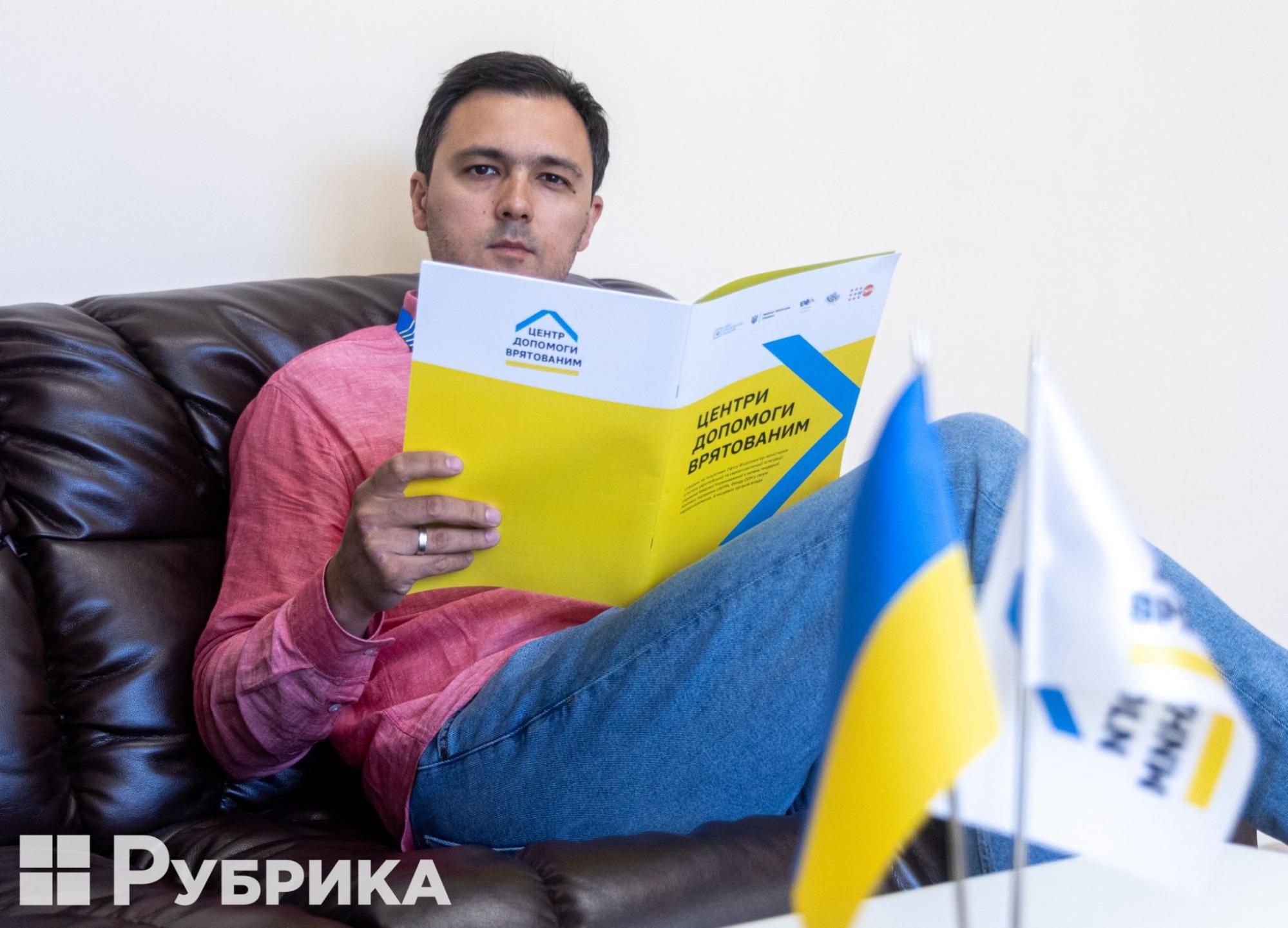
Durdyev, the coordinator of the center, says that the employees understand the future challenges and are already working with military families
Psychologists of the center also work with military families. It's free of charge, confidential, and safe.
"Service members will never be the same again after returning from the front line, but relatives are waiting for the person they used to be," explains Shatkovska. "This can be a person with tremendous experience, and these are our future leaders. Therefore, this needs to be explained to wives or other family members."
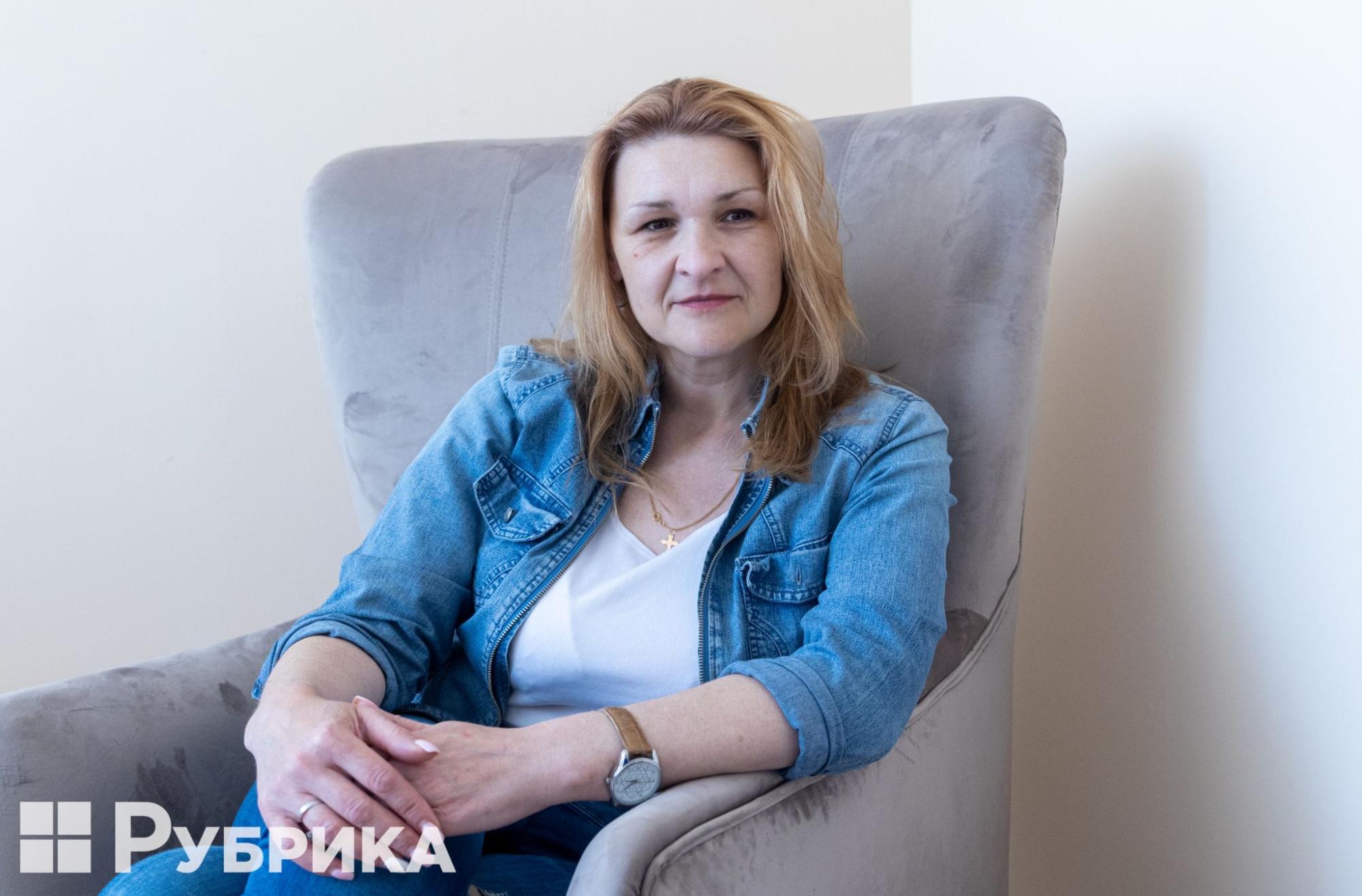
Kateryna Shatkovska explains the process of transformation a person who has gained combat experience goes through
According to her, success depends a lot on family relationships, desire, and a sense of the meaning of this work. For example, to do it for the sake of children and the future. Everything is possible when two or at least one person in the family realizes this meaning.
How to contact the Survivor Assistance Center
The Survivor Assistance Center in Kyiv is located at Raiduzhna Street, 6A and is open Monday to Friday, from 10 a.m. to 5 p.m.
There is a helpline: +38(066) 170 48 90, +38(044) 540 00 77
The Kyiv Survivor Assistance Center has its own Facebook page and Telegram channels.

Case manager Kruhlyak shares that in 2023, the flow of people to the center became more intense
Case manager Kruhlyak shares that people come to the center in waves: when Kherson was liberated, many came from there, especially with small children, because it was difficult to meet basic needs there due to problems with water and electricity. Now, there is quite a large wave of residents from Bakhmut, where fierce battles have been ongoing for several months.
"In general, the work is very intensive. Each request is difficult in its own way. If it is about domestic violence – and there are children – it is a difficult topic because you feel sorry for the woman and the children," the specialist continues. "If a woman from Bakhmut comes here, it means her home was destroyed, and she lost business or a job. Many older people need to start from scratch. There are many opportunities in Kyiv, but also many obstacles to adjusting and starting a new career, life in general. Therefore, every case is unique."

Getting out of the vacuum: emergency support on wheels helps victims of violence

"You cannot overcome grief with tears — only with actions": the mobile team of social and psychological assistance helps violence victims overcome their challenges

Work for IDPs: five Ukrainian initiatives that help displaced people find job opportunities
Newsletter
Digest of the most interesting news: just about the main thing


